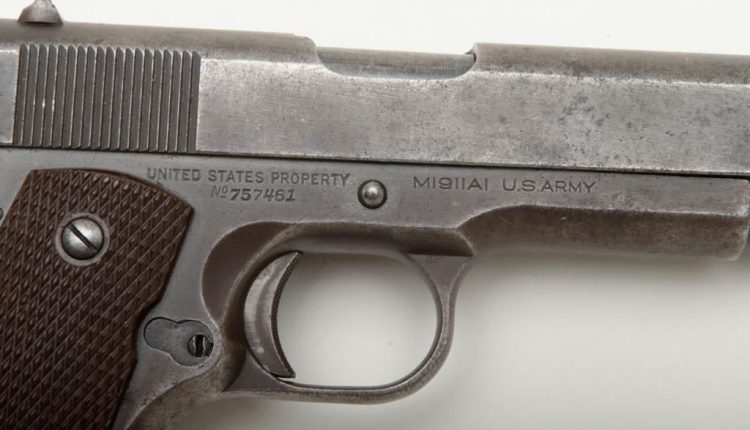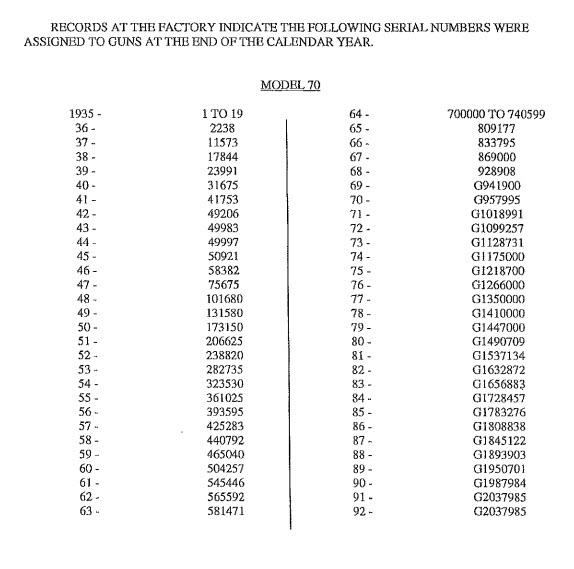

But, if a cell phone was found at a garage sale, nobody questions if it’s hot or not, even though cell phones are stolen more than guns in the US. Many people would see a gun laying in the woods and assume it was used in a crime when in reality it was left by a careless squirrel hunter. If the integrity of a buyer or seller is genuinely questionable, you can refuse. If something doesn’t feel right about a sale, walk away. Where some put the responsibility on the government, I put the responsibility on the people. Unless given a reason otherwise, it’s safe to assume a gun is clean, and a buyer is legitimate. Would you want to do a stolen property check on anything you bought at a garage sale? It’s somewhat the same thing. It’s just interesting how some people have an unrealistic fear of buying a stolen gun. I do want to interject here that it’s generally not necessary to do this.

And if you are buying, Being sure the seller isn’t a known criminal means the gun likely isn’t stolen. If you are selling a gun, it may be worth your peace of mind.

Generally for around $15, a gun dealer is willing to run a background check on the buyer and seller in a private sale. what a gun store or FFL can do is oversee a Private transaction of firearms. Apparently that’s privileged information. They cannot look up a gun in the national database and see if it’s stolen. Gun Dealers, or FFL’s, do not have access to the NCIC Stolen Gun Database.

Can Gun Dealers Check a Gun’s Serial Nuber? Law enforcement tells us that most people don’t know and can’t find the serial number of guns stolen from them. it also requires you to know the serial number. Its main weakness is that it requires people to self-report a stolen gun.Īlthough simple to do (just input a serial number) most people don’t use it, mainly because they don’t know about it. These are all run by user-submitted information but do have a good track record of not being abused. It would be neat to just be able to type in a serial number and see if it’s legit before completing a sale.Ĭurrently, there are several websites offering a public use database with a serial number lookup for firearms. The only ones I know of are Ohio and Florida, but there will probably be more soon. Now, there are some states that do have their own public use Stolen Gun Database. However, outside of law enforcement and federal agents, no other person has access o this database. The NCIC database is accessible 24/7 by any law enforcement agency. Guns officially reported stolen are entered in the National Crime Information Center (NCIC) Stolen Gun Database.
#GUN SERIAL NUMBER LOOKUP HOW TO#
Want to learn how to check your gun’s serial number, or avoid the situation altogether? It might come in handy. is a public database, but the information is user-supplied and not official, meaning it’s not related to crime reports. Some states have their own stolen gun database, open to the public. Any law enforcement officer can run the check. Guns can be checked against the NCIC Stolen Gun Database. Date of purchase or estimated timeframe.įor assistance or for additional information, please contact the NTC Firearms Services Section at 1-80.Ever been wary of buying a gun from an individual because you don’t know if it’s clean? While rare, it can happen. Name and location of licensed firearms dealer (where the firearm was purchased).Ħ. Investigation/case number if requested by law enforcement other than ATF.ĥ. Fax requests to 1-80 Attention: RSR Program.Īll requests require the following information:Ģ. Fax requests should be submitted on official law enforcement agency letterhead and include the name and title of the person submitting the request. Email requests should be sent to and must be submitted from an official law enforcement agency email address and include the name and title of the person submitting the request. Law Enforcement: Requests can be submitted via email or fax. The NTC can only provide firearms records to law enforcement personnel, not to the general public. Private Citizens: A private citizen needing to obtain the serial number of a stolen firearm purchased from an FFL which has since discontinued business will need to contact local law enforcement and request that the agency submit a Record Search Request. Law enforcement regularly makes such requests to obtain the serial number of a firearm that was stolen from an individual. The Records Search Request (RSR) Program, Tracing Operations and Records Management Branch (TORM), will search the records maintained at the National Tracing Center (NTC) from out of business Federal Firearms Licensees (FFLs) pursuant to a request from ATF or other accredited law enforcement agency as part of a bona fide criminal investigation.


 0 kommentar(er)
0 kommentar(er)
